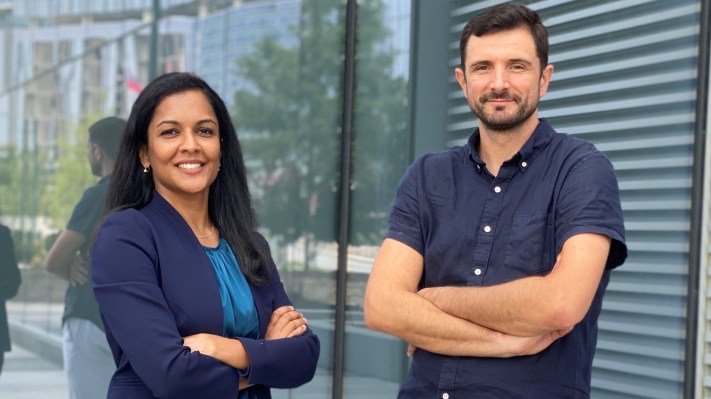eStreamly blends physical, digital shopping with the video as the star

Livestream shopping isn’t as popular in the United States as it is in other parts of the world — yet. As the shopping method gains momentum, eStreamly is the latest startup out to make its platform the one businesses want to use.
The company initially launched in 2021 and has since raised $450,000 from individual investors. Co-founders Nicolas Bailliache and Smitha Kommareddi met each other at a blockchain hackathon in 2018.
Bailliache, with a background in retail sales, and Kommareddi, with a background in building software, bonded over the question, “how can we bring people at the center of e-commerce?” After looking at various technologies over the next two years, they landed on live shoppable video.
eStreamly is their answer to that question, offering business-to-business video commerce software to enable livestreams and videos to be shoppable across platforms, including websites, social media, SMS and emails.
“Livestream is not as popular because people are just starting, but our clients are thrilled and their clients are thrilled,” Bailliache told TechCrunch. “I think it’s more about the adoption curve: People were talking about AI for 10 years, and then there was an ‘aha moment’ when ChatGPT came in. Same for live shopping. There will be a tipping point.”

eStreamly’s livestream presentation mode. Image Credits: eStreamly
After speaking with more than 2,000 e-commerce companies and pilot-testing with over 50 brands, it then relaunched eStreamly in July as a white label solution with in-video checkout, Bailliache said.
The differentiator to other livestreaming platforms is that the video becomes a direct e-commerce extension with in-video checkout. It is connected through APIs to merchant payment, inventory, products and user management.
Bailliache and Kommareddi are also leveraging the term “phygital” for their business clients. It’s a mash-up of “physical” and “digital” to mean blending offline and online experiences. In eStreamly’s case, an example would be working in a mall and seeing display screens showing a video. At the end, it shows a QR code that the customer scans and is taken to a digital experience, Kommareddi explained.
“We had an MVP and were experimenting with different customers and different verticals,” Kommareddi said. “Now we have a closer integration with the different e-commerce providers, with the payment payment providers and also bigger e-commerce systems.”

